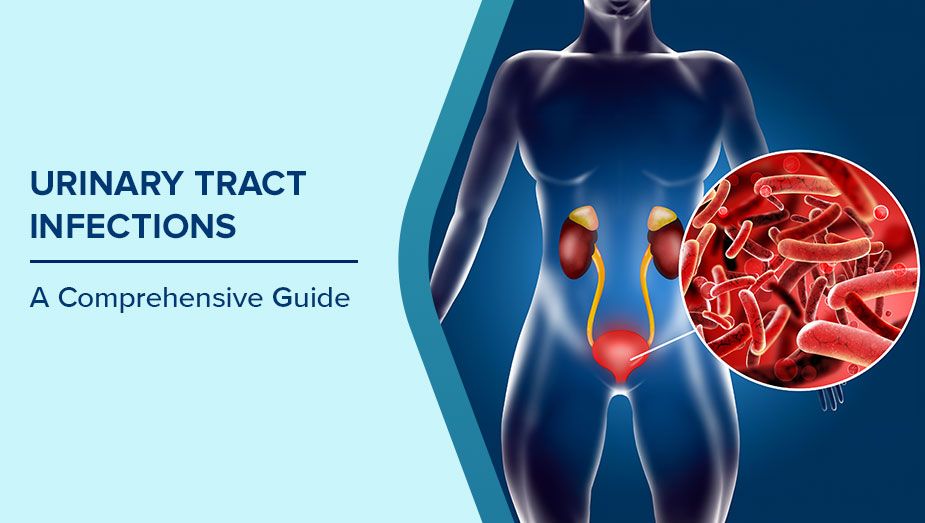
What is a Urinary Tract Infection (UTI)?
A urinary tract infection (UTI) is an infection that affects any part of the urinary system, including the kidneys, bladder, ureters, and urethra. Most UTIs involve the lower urinary tract, particularly the bladder and urethra.
Causes of UTI
UTIs are typically caused by bacteria entering the urinary tract through the urethra and multiplying in the bladder. The most common bacteria responsible for UTIs is Escherichia coli (E. coli), which is normally found in the digestive system. Other factors that can contribute to UTIs include:
- Poor hygiene – Not cleaning properly after using the toilet.
- Sexual activity – Increases the risk of bacterial transfer.
- Urinary retention – Incomplete emptying of the bladder, leading to bacterial growth.
- Dehydration – Not drinking enough fluids can reduce urination, which helps flush out bacteria.
- Use of catheters – Increases the risk of bacterial infections.
- Menopause – Hormonal changes can lead to thinning of the urinary tract lining, making infections more likely.
- Diabetes – High blood sugar can encourage bacterial growth.
Symptoms of UTI
Symptoms of a UTI can vary depending on which part of the urinary tract is affected.
Common Symptoms:
- Frequent and urgent need to urinate
- Burning sensation or pain while urinating
- Cloudy, dark, or strong-smelling urine
- Pelvic pain (especially in women)
- Blood in the urine (hematuria)
Symptoms of a Kidney Infection (Severe UTI):
- High fever and chills
- Nausea and vomiting
- Lower back or side pain
- Fatigue and weakness
Treatment of UTI
1. Antibiotics
- The primary treatment for bacterial UTIs is antibiotics, such as:
- Nitrofurantoin
- Trimethoprim-sulfamethoxazole
- Fosfomycin
- Ciprofloxacin (for complicated cases)
2. Home Remedies & Prevention
- Drink plenty of water – Helps flush out bacteria.
- Cranberry juice or supplements – May help prevent UTIs.
- Urinate frequently – Do not hold in urine for long periods.
- Practice good hygiene – Wipe front to back after using the toilet.
- Avoid irritating products – Stay away from scented soaps and douches.
- Wear loose-fitting clothes – Helps keep the area dry and prevents bacterial growth.
When to See a Doctor?
Seek medical attention if:
- Symptoms persist for more than a few days.
- You experience fever, chills, nausea, or severe pain.
- There is blood in your urine.
- You have recurrent UTIs.
Proper diagnosis and treatment can prevent complications such as kidney infections or sepsis. If you suspect a UTI, consult a healthcare professional for guidance.
Certainly! Here’s more detailed information on Urinary Tract Infections (UTIs), including prevention, complications, and factors that can make UTIs more likely.
Risk Factors for UTIs
Certain factors can increase the likelihood of developing a UTI. These include:
1. Gender
- Women are at a higher risk due to the shorter length of the urethra, which makes it easier for bacteria to enter the bladder.
- Men have a lower risk but may experience UTIs due to prostate issues, particularly in older age.
2. Age
- Young children and elderly adults are more susceptible to UTIs due to incomplete bladder emptying or weakened immune systems.
3. Pregnancy
Pregnant women are more prone to UTIs, as the growing uterus can put pressure on the urinary tract, causing urinary retention and making it harder to fully empty the bladder.
4. Sexual Activity
- Sexually active women have a higher risk, especially if they have multiple partners or if intercourse involves frequent lubrication (which can introduce bacteria).
5. Urinary Tract Abnormalities
Some people have structural abnormalities in their urinary tract that can lead to poor urine flow or urinary retention, both of which increase UTI risk.
6. Use of Diaphragms or Spermicides
Certain birth control methods, especially diaphragms and spermicidal agents, can increase the likelihood of UTIs in women by disrupting the balance of bacteria in the vaginal area.
7. Catheter Use
- People with long-term urinary catheters or who are hospitalized may have an increased risk of UTIs, as the catheter can introduce bacteria into the urinary tract.
8. Immune System Issues
People with conditions that weaken the immune system, such as diabetes or HIV, are more vulnerable to UTIs due to the body’s reduced ability to fight off infections.
Complications of UTIs
If left untreated, UTIs can lead to more serious complications, including:
1. Kidney Infections (Pyelonephritis)
If bacteria travel from the bladder to the kidneys, it can result in a kidney infection. This is a serious condition that requires immediate medical attention and can cause long-term damage to the kidneys if not treated.
2. Sepsis
In rare cases, an untreated UTI can lead to sepsis, a life-threatening condition where the infection spreads throughout the body. Symptoms of sepsis include fever, chills, rapid heart rate, confusion, and low blood pressure. Sepsis requires emergency medical care.
3. Recurrent UTIs
Some people experience recurrent UTIs, which can cause ongoing discomfort and complications. This may require long-term treatment or preventive measures, such as low-dose antibiotics or lifestyle changes.
4. Permanent Kidney Damage
In cases of untreated or severe kidney infections, permanent damage to the kidneys can occur, leading to kidney failure.
Prevention of UTIs
While it may not always be possible to prevent a UTI, several strategies can help reduce the risk:
1. Stay Hydrated
Drinking plenty of water helps flush out harmful bacteria from the urinary tract and can prevent UTIs. Aim to drink at least 6-8 glasses of water per day.
2. Practice Good Hygiene
- Wipe front to back after using the toilet to avoid spreading bacteria from the anus to the urethra.
- Wash genital areas before and after intercourse to reduce bacteria exposure.
- Avoid using scented feminine hygiene products, such as sprays, douches, or powders, which can irritate the urinary tract.
3. Urinate Frequently
- Don’t hold in urine for long periods. Urinating regularly helps to flush bacteria out of the urinary tract.
- After intercourse, urinating soon afterward can help clear any bacteria introduced during sex.
4. Avoid Irritants
Certain products can irritate the urinary tract and increase the risk of UTIs. These include:
- Scented soaps, bubble baths, or feminine hygiene sprays.
- Tight clothing or non-breathable underwear (such as thong underwear), which can trap moisture and bacteria near the urethra.
5. Cranberry Supplements
Though studies have been mixed, some evidence suggests that cranberry products (e.g., cranberry juice or supplements) can prevent UTIs by making it more difficult for bacteria to stick to the walls of the urinary tract.
6. Probiotics
Taking probiotics, particularly those containing Lactobacillus strains, may help maintain a healthy balance of bacteria in the urinary tract and reduce the likelihood of infections.
7. Manage Underlying Health Conditions
If you have conditions like diabetes or a weakened immune system, it’s essential to manage them carefully to lower the risk of UTIs. Keeping blood sugar levels in check and following medical guidance can help prevent infections.
When to Seek Medical Help
If you experience the following symptoms, it’s important to contact a healthcare provider as soon as possible:
- Painful urination or frequent need to urinate without being able to pass much urine.
- Blood in urine or urine that appears cloudy or foul-smelling.
- Fever and chills in addition to the symptoms of a UTI.
- Severe abdominal or lower back pain, which could indicate a kidney infection.
- Pain during intercourse or changes in sexual function.



 DailyMediCure
DailyMediCure 











